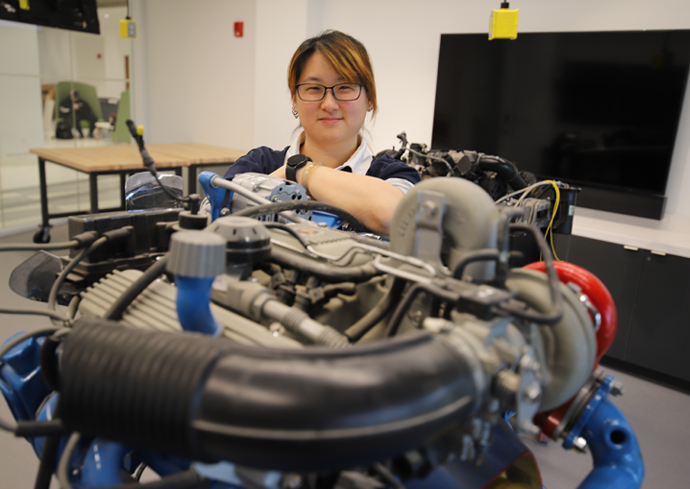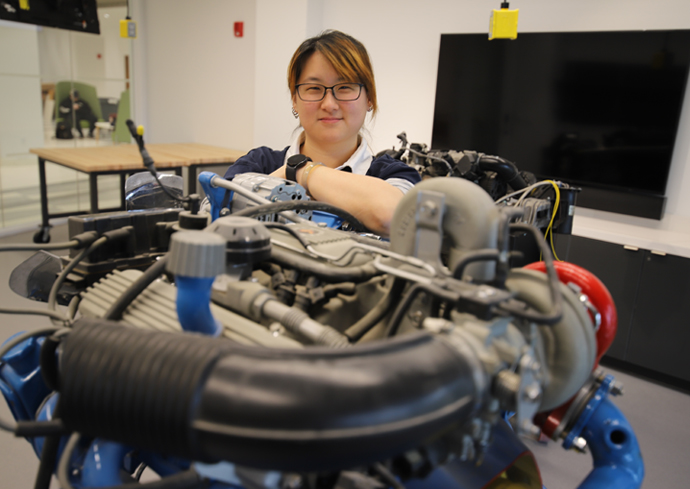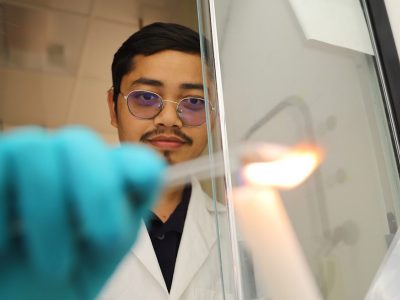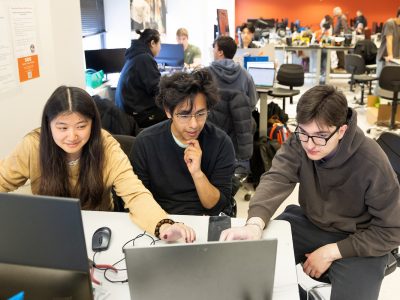A class in the College of Engineering and Computer Science, automotive engineering (MAE 457), is designed to equip students for careers in the automotive industry and a variety of other fields. This course will ignite students’ curiosity to explore the design and development of different vehicle engines and will be taught by mechanical and aerospace engineering professor Andrea Shen. The course will also cover new topics in automotive engineering, including hybrid and electric vehicles.

Students in MAE 457 will learn about how internal combustion engines work, along with the significance of biofuels, vehicle dynamics and how different factors impact engine performance. They will also have hands-on learning experiences with engines, observing the functions of diesel engines and gasoline engines located in Link Hall. Each student will also complete a project where they conduct research on a vehicle of their choice.
The course will also feature guest speakers from companies such as Space X, Ford, Harley Davidson, Sierra Space, Roush Yates, Cummins and Caterpillar, with students receiving an opportunity to interact with these industry professionals.
“I’m hoping students will gain an appreciation for cars,” says Shen. “They will gain an understanding of all the things that go on in the car and how they interact with each other. I also want to bring awareness on biofuels and the importance of research on combustion engines and automotives in the face of electric vehicles.”
Shen earned both bachelor’s and master’s degrees at Virginia Tech and a Ph.D. at the University of Wisconsin-Madison in the Engine Research Center. She will incorporate her research focuses on gasoline engines, biofuels, and engine performance as well as creating representative models of different base fuels into the course.



